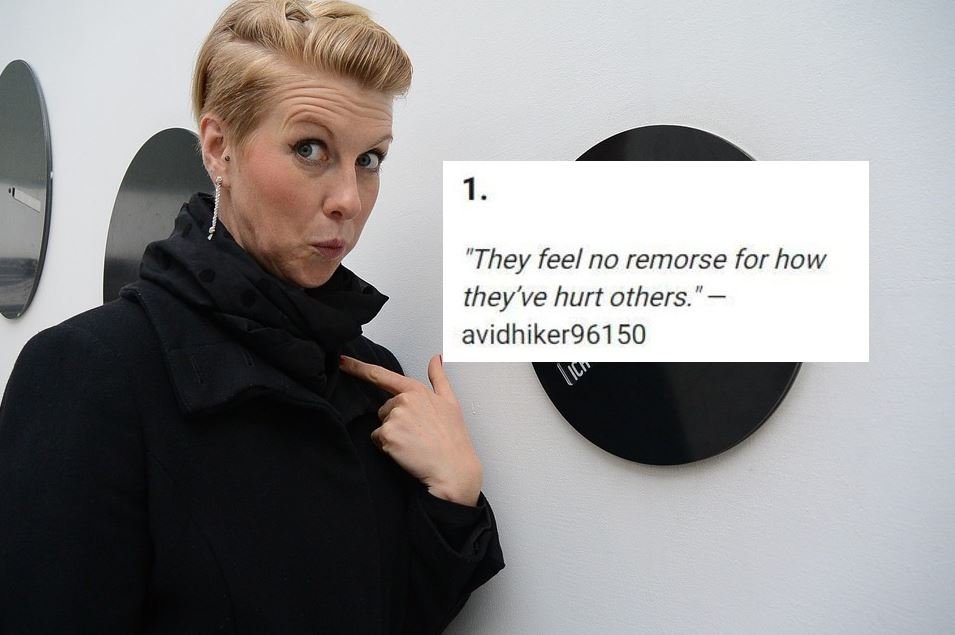In 1997, Oprah Winfrey spoke with Maya Angelou for an “Oprah’s Lifeclass” episode, and she revealed one of the most important lessons the “I Know Why the Caged Bird Sings” author had taught her: “When people show you who they are, believe them.”
“When a person says to you, ‘I’m selfish,’ or ‘I’m mean,’ or ‘I am unkind,’ believe them,” Oprah says in the clip. “They know themselves much better than you do.”
Oprah recounted the life advice while discussing a relationship with a man she felt had let her down. “[Dr. Angelou] was saying to me, ‘Why are you blaming the other person? He showed you who he was,’” Oprah recalled.
Angelou’s simple advice is a great way to detect potential red flags, whether someone has a new romantic partner, coworker or friend. It’s especially helpful when we’re unsure of how to judge someone or in denial about their questionable behavior.
A Reddit user with the username Potatoe_stealer asked the online forum, “What is a telltale sign that someone is a selfish person?” and the question received over 7,000 responses. Many of them explained how selfish people often disregard others in conversations or downplay the seriousness of their problems.
This is a great way to determine if someone will be selfish when a conversation turns into action. According to this group of Reddit users, if someone is cutting you off when you speak, they may not be there for you when things get rough.
Here are 19 of the best responses to the question: “What is a telltale sign that someone is a selfish person?”
1.
“They feel no remorse for how they’ve hurt others.” — avidhiker96150
2.
“Doesn’t think they’re wrong in the slightest bit. They can’t shoulder any bit of responsibility.” — No_Key_6276
3.
“They don’t remember the times people helped them, but remember clearly all the times they have helped others.” — GoodMerlinpeen
4.
“They respond how worse their situation is when you’re sharing your problems with them. No try for help or listening, just trying to draw attention on their side.” — seyfgs
5.
“They gladly take any favours you do for them, but when asked if they could reciprocate once, they get defensive and or aggressive and act like you’re the selfish one for daring to expect something in return. It doesn’t make you a bad person to expect reciprocation in a relationship with someone else, romantic or platonic. Relationships are give and take and that makes them healthy. It’s not entitlement to expect kindness if you give kindness. If you’re the only one giving, you’re being taken advantage of.” — random-sh**-writing
6.
“Every bad thing you do to them is drama-worthy. Every bad thing they do to you are details and should be moved on from, and why can’t you just do that? You’re so dramatic!” — Pasdusername
7.
“If you are in a group and there is one person that is constantly interrupting the middle of what you or anyone else is saying generally to brag about themselves with a ‘one-upper’ story, is generally a precursor to stop associating with them. I’ve met too many of them in my days and they are more often than not happy to throw you under the bus whenever the opportunity arises.” —Philay_shio
8.
“If they always talk about themselves.” —Effective-Craft-1173
9.
“They have that superpower to lead everything back to themselves. Even when you’re actually talking about your own life or a specific problem of yours, they somehow make it that you start talking about them instead without even changing the topic.” — Anskin12
10.
“They have that superpower to lead everything back to themselves. Even when you’re actually talking about your own life or a specific problem of yours, they somehow make it that you start talking about them instead without even changing the topic.” — AnnaVonKleve
11.
“Cliche answer but I have found the ‘return the shopping cart’ test to be pretty accurate. It is such a small thing, but it does tell you if a person thinks small things like that matter.” — LeeroyTC
12.
“They’re rude to waitstaff or just staff and employees in general. Or if their situational awareness is severely lacking and they don’t seem to have a problem with it.” — SpeedBlitzX
13.
“Trauma dumping and then not reciprocating if someone else had a bad day/felt comfortable enough to open up to them.” — PessimistThePillager
14.
“People who have kids on purpose, and then act like their kids owe them (well above and beyond basic kindness and human respect) for the rest of their lives.” — femmetastic
15.
“Poor listener.” — Pristine-Practice-51
16.
“When they monologue at you. Every conversation is just them performing and everyone else is just part of the audience.” — blocky_jabberwocky
17.
“People who always talk about money or the grind. Usually, they will sell you out in a heartbeat or take advantage of others for money which is pretty selfish.” — stonebutts


































